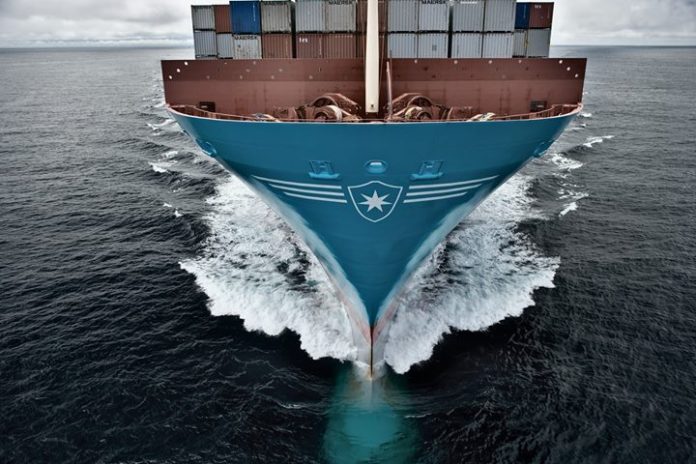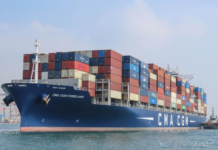
Bunker surcharges are being implemented as the cost of fuel has increased follwoing the implementation of the IMO 2020 sulphur cap.
Danish operator Maersk is the latest company to implement surcharges and the company says that they are result of the increased costs associated with very low sulphur fuel oil (VLSFO). The cost for blended fuel has decreased over the last few days, as seen in the MABUX Index, but the trigger for a bunker and environmental charge is calculated over a three month period.
Maersk has notified customers, in an advisory note, that it will raise bunker prices, as their operational costs have significantly increased. The Danish shipping giant says that it had already informed customers during the course of 2019 that the new IMO 2020 regulation would bring a substantial cost increase for ocean shipping.


“Fuel costs would account for an even larger portion of the total freight rate,” according to Maersk. “At the same time, we also anticipated increased volatility in fuel prices.”
Shippers, however, reject the policy of fuel surcharges and the Maritime Policy Manager of European Shippers’ Council (ESC), Jordi Espin, explained their reasoning to Container News, “European shippers don’t agree to the standardization of imposed formulas and costs with no transparency or debate with customers. IMO2020 is a regulation to make the shipping industry cleaner, which we fully endorse. We do not support that it is taken as a business opportunity and as a tool to decouple service and costs. Service keeps deteriorating with no sign of improvement and costs run wild far ahead with no reference to service.”
Maersk’s Environmental Fuel Fee (EFF) and the Quarterly Bunker Adjustment Factor (BAF) levels are subject to a monthly review and exceptional trigger if the price of compliant fuel (VLSFO – 0,5% sulphur fuel oil) moves up or down significantly during the quarter, according to the note.
“The trigger to activate the exceptional review in both cases is defined as a change of more than US$50/tonne (up or down) on bunker prices compared to the last time both surcharges were adjusted,” Maersk explained.
In recent months, VLSFO prices increased substantially and more so in recent weeks, the largest container shipping company reports. In particular, VLSFO prices in Asia (Singapore) exceeded US$700/t for a period, a more than 20% increase compared to the previous bunker prices used for the BAF and EFF calculation. The average increase in January is expected to exceed US$50/mt.


Accordingly, Maersk will apply the additional monthly trigger defined in its BAF and EFF formulas and the new tariffs will be effective 1 March 2020.
Maersk uses Bunkerworld’s fuel price index 0.5% Sulphur fuel oil (VLSFO) for the BAF and EFF calculation. The period used for the calculation will be 26 DEC’19 to 25 JAN’20 and compared versus following figures:
- BAF: Average bunker price from 26 AUG’19 to 25 NOV’19 (US$537,99/t)
- EFF: Average bunker price from 26 SEP’19 to 25 OCT’19 (US$547,37/t)
The tariff increases will be seen across all trades with an increase range between US$50-200/FFE, reflecting the increased fuel costs associated seen during recent weeks. The actual increases per trade will be communicated by end January, according to Maersk.







